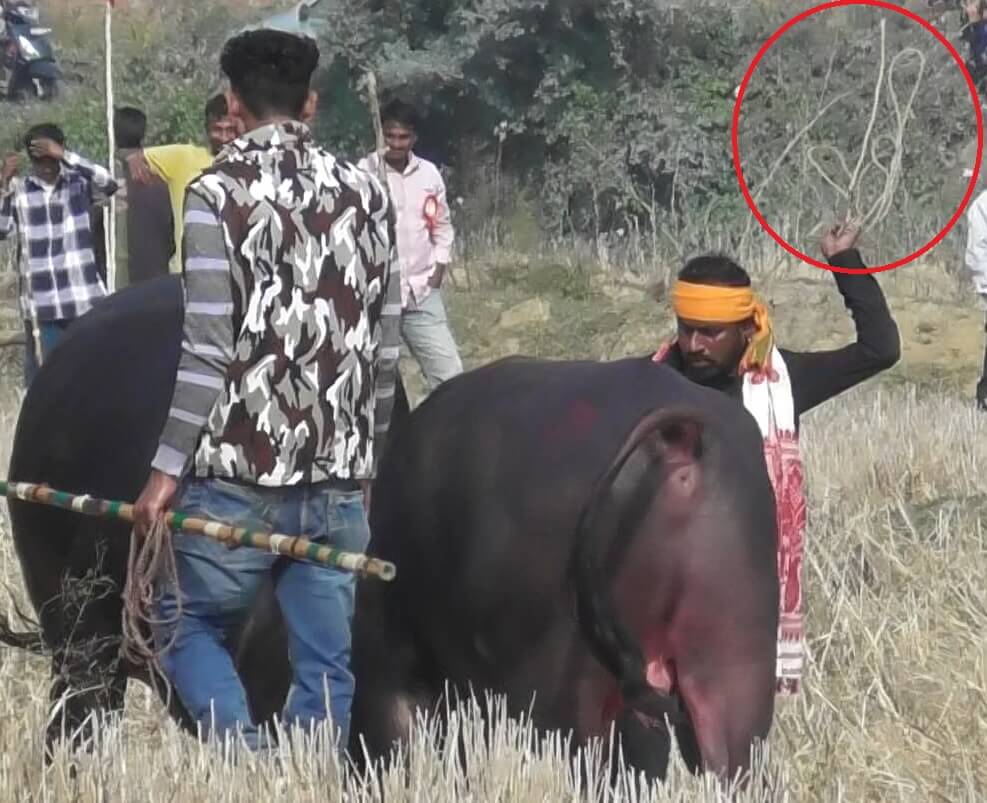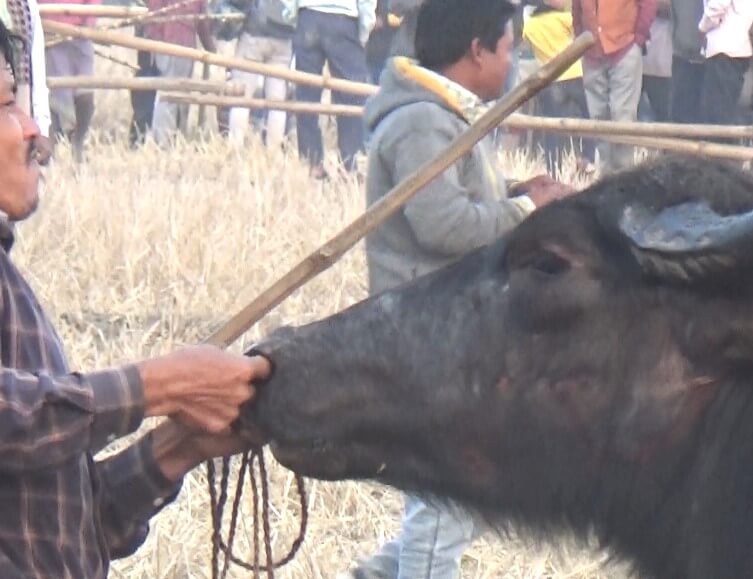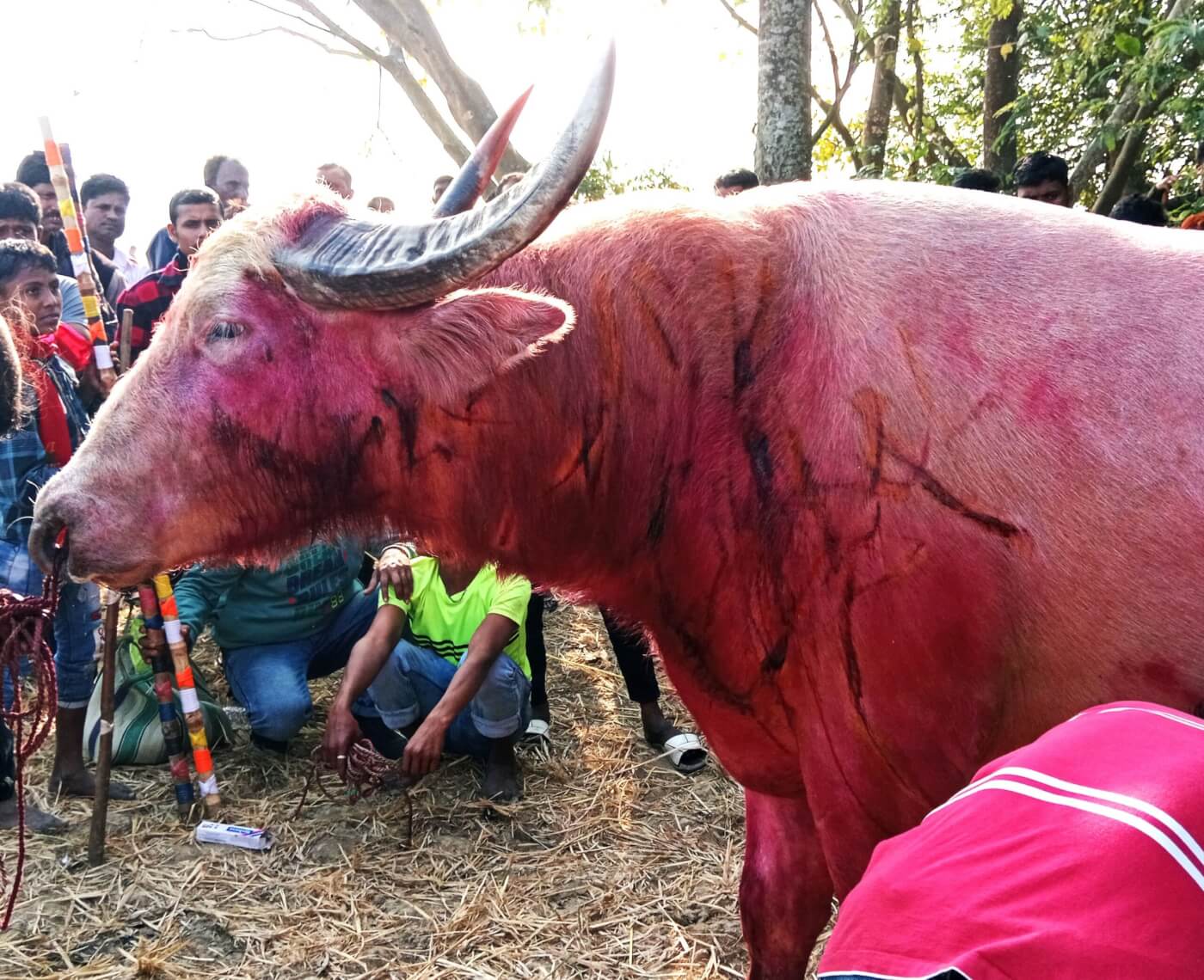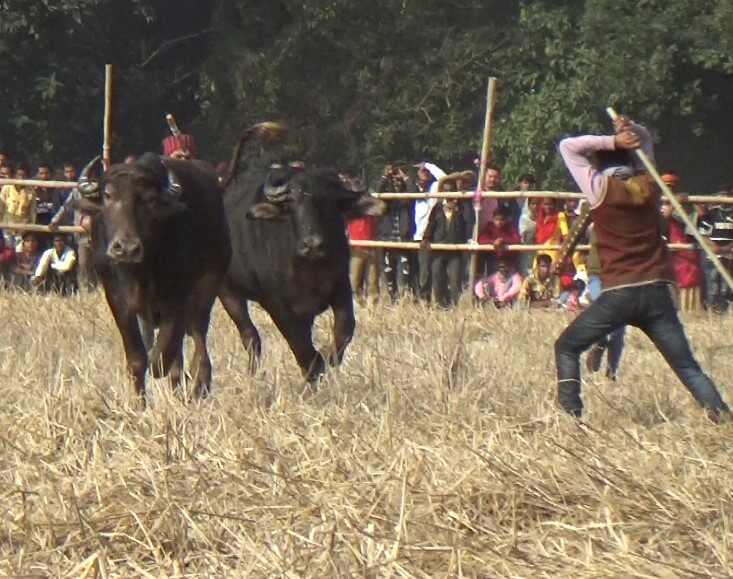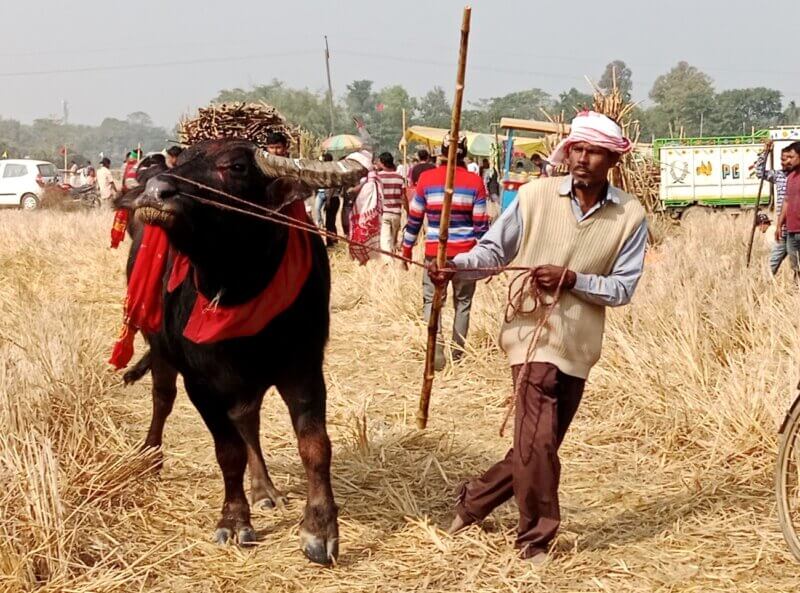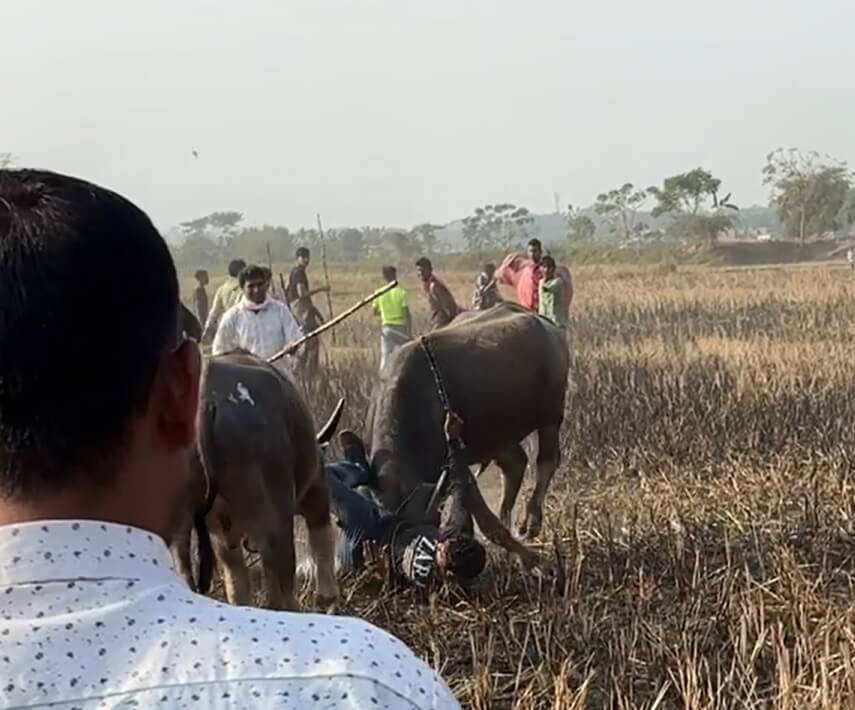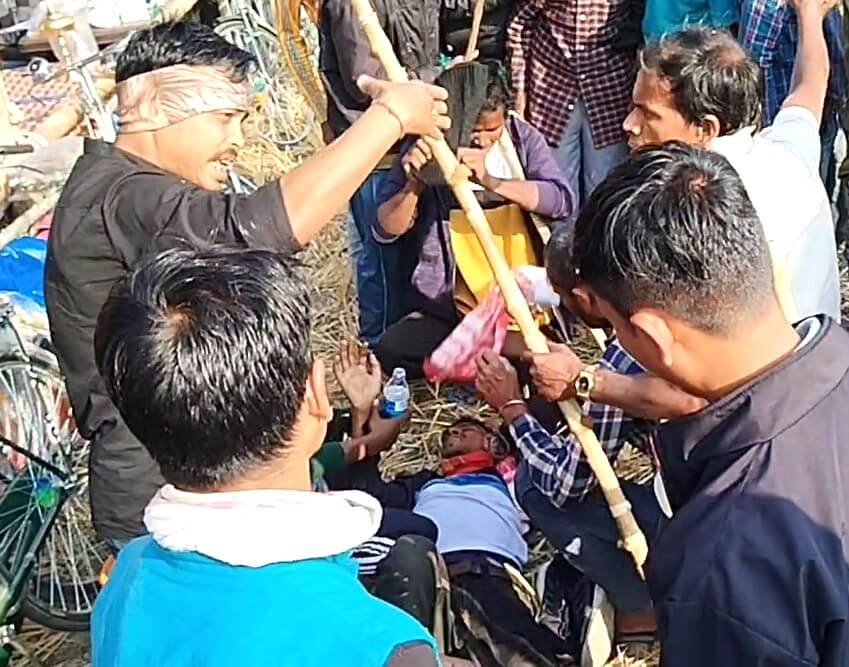Gauhati High Court Approached by PETA India to Ban Buffalo Fights
Following the Assam government’s decision to allow buffalo fights, PETA India filed a petition with the Gauhati High Court making the case for the cruel spectacles to be prohibited once again. As evidence, PETA India submitted investigations into these fights which reveal that terrified and severely injured buffaloes were forced to fight through being beaten. The petition cites numerous violations of central law in the conduct of these events, and PETA India is also seeking an interim stay before the court to prevent any buffalo fights from being conducted during the course of the proceedings.
An investigation into a buffalo fight held in Ahatguri in the Morigaon district of Assam on 16 January revealed that to instigate buffaloes to fight, owners slapped, pushed, and shoved them; jabbed and struck them with wooden sticks; and pulled them roughly by their nose-ropes. When fights were underway, some owners and handlers jabbed the buffaloes with sticks and whacked them with bare hands, causing them further distress. The buffaloes locked horns and fought, sustaining bloody wounds to their necks, ears, faces, and foreheads – many had injuries all over their body. The fights lasted until one of the two buffaloes broke away and fled.
Owners and handlers dragged buffaloes around using ropes threaded through their sensitive nostrils. Some buffaloes’ nostrils bled due to the ropes being yanked, and many repeatedly licked their nostrils in an attempt to relieve the pain. No shade, water, or food was provided for the animals during the fight, a violation of the standard operating procedures for buffalo fighting issued by the Government of Assam.
Some buffalo owners forced the animals to fight in the spectator stands while the official fights were underway in the arena. These unsanctioned fights increased the risk of buffaloes injuring or trampling human spectators.
PETA India’s petition submitted to the Gauhati High Court points out that buffalo fights violate the Constitution of India; The Prevention of Cruelty to Animals Act, 1960; and judgements of the Hon’ble Supreme Court of India, including in Animal Welfare Board of India vs A Nagaraja & Ors. Such fights are inherently cruel, cause immeasurable pain and suffering to the animals forced to participate, and contradict the tenets of ahimsa (non-violence) and compassion, which are integral to Indian culture and tradition. Allowing these events to continue is a regressive step which threatens to undo almost a decade of progress in human and animal rights.


